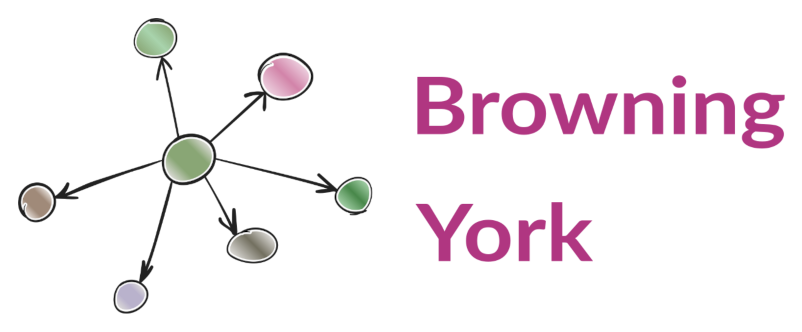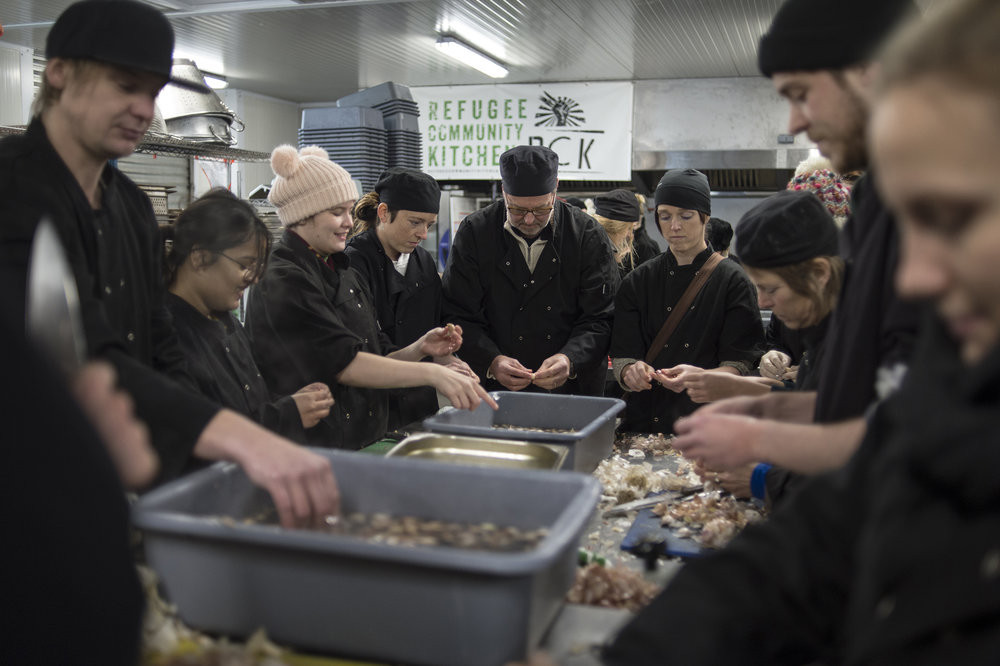During 2021 I’m sharing stories of kindness. Speaking up about the things that people do to help others and make their day better.
Each month I’m going to publish a ‘What If…’ blog to inspire us all to think about how we already make the world a kinder place and ideas for things we could do.
My first ‘What If’ blog comes from comms professional, Nisha Spearman, talking about the ways in which they and others provide comfort and kindness for refugees. You don’t have to fix everything, even small gestures make a difference.
My eyes burn as mascara mingles with my tears. The scene unfolding before me, the smell, is visceral. “Hold it together,” I whisper to myself. I wipe away the mess of black eye makeup on my sleeve and prepare myself to get the job done. It’s the autumn of 2015, and I’ve just set foot in the Calais ‘Jungle’ for the first time.
The power of community in action
The news about refugees travelling across Europe had been building all summer and I, like many other people, had been asking myself how I could possibly help. When the body of a young boy named Alan was washed up on a Turkish beach, his death galvanised thousands of people into action.
Having already heard about the camp in Calais, my friends and I, many of them fans from our local football club, put a call out to our community asking for tents, sleeping bags, warm clothing, sturdy footwear and other much-needed items. On the Saturday, football fans and local people from across South London were queuing around the block to drop off their donations.
I remember thinking that we’d receive perhaps a car boot’s worth of stuff. I naively thought I’d be able to take it all home in a cab at the end of the day and store in the shed in my garden. The response from our community was incredible, and more than a little bit overwhelming.
Paying close attention to the reports from longterm volunteers already in Calais, we began to sort the mounds of donations, categorising and packing them by item and size. It was a mammoth task. Our community answered our call once again and came to the football ground to help.
After a few weeks had passed, we were ready to head out to Calais. We delivered the aid to drop off points, including a central warehouse, where much of the aid was stored before being distributed to camp residents. We visited caravans and makeshift kitchens within the camps that were designated areas for new arrivals to access tents and other essentials for the first nights stay.
Meanwhile the donations kept on coming in. So, for the next year, we continued to travel to Calais and Dunkirk, delivering aid to the volunteers on the ground and directing financial donations to the kitchens.
Kindness continues
While the refugees of Northern France are out of the headlines, countless people remain stuck at the border. And they aren’t the only ones. Over the last few weeks reports from Lipa camp in Bosnia paint a grim picture of a camp destroyed by fire.
But amongst the terrible conditions, people show compassion and kindness. Charities and independent volunteers from groups such as No Name Kitchen are doing their best to meet people’s needs by handing out food and blankets.
Cook for the cause
Independent volunteers have used whatever skills and resources at their disposal to help.
While I used my expertise in project management and charity communications to raise awareness through social media, secure press coverage and manage a blog, many others have found their own ways to get involved.
A translator by profession, 48-year-old Valérie Piederriere used her hobby as a baker to support refugees after hearing about the conditions in the camps.
“I started my Valérie’s Calories project as a means to collect funds by having people buy something instead of just asking them for money with nothing in return.”
After coming back from a six-week stint of volunteering on the ground in a now-defunct camp in Dunkirk, Valérie realised she needed to find a more sustainable way of supporting the camp residents. “I decided to concentrate on Valérie’s Calories because full-time volunteers always need cash to keep doing what they do on the ground. I’ve been doing it ever since, sometimes it’s very busy and sometimes less so, but generally, there is always a small but steady inflow of cash,” said Valérie.
The funds from Valérie’s Calories go to Refugee Community Kitchen (RCK), a charity set up by veteran of the UK festival scene, Steve Bedlam. Operating in Camden and Calais, RCK and its gang of volunteers have served over three million meals to displaced people since 2015.
Talking about the importance of providing food, Steve said: “Food plays a big part in my life, not just because I need it to live. When I eat familiar food, it reminds me of certain times, good times. It makes me feel safe and brings many good memories back. This is why we create culturally relevant food so that the people we support have that same feeling of safety and memories of a better time.
The best thing to hear when serving food is: “this reminds me of home or my mum”.
Use your skills
You don’t have to be a part-time baker, a kitchen volunteer or travel to a refugee camp to help. Whether you work in communications or another field, there are many ways that you can support refugees in Bosnia, France, the UK or elsewhere. Most towns and cities in the UK have organisations or informal groups of volunteers taking action. Get in touch and find out what they need the most.
The support you give could be as simple as liking an organisation’s page on social media and sharing posts with your friends, family and colleagues. If you have time, you could use your skills to support the cause through copywriting, editing video, securing media placements or sharing your expertise in another way. Finally, if you find yourself with a few spare bob, a fiver for the pot never goes amiss.
Nisha Spearman (they/them) is a communications professional with ten years of experience in the charity, public and private sectors. Continue the conversation with Nisha on Twitter.
The post What if we believe ordinary people have the power to do extraordinary things appeared first on Time for Kindness.

